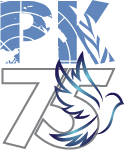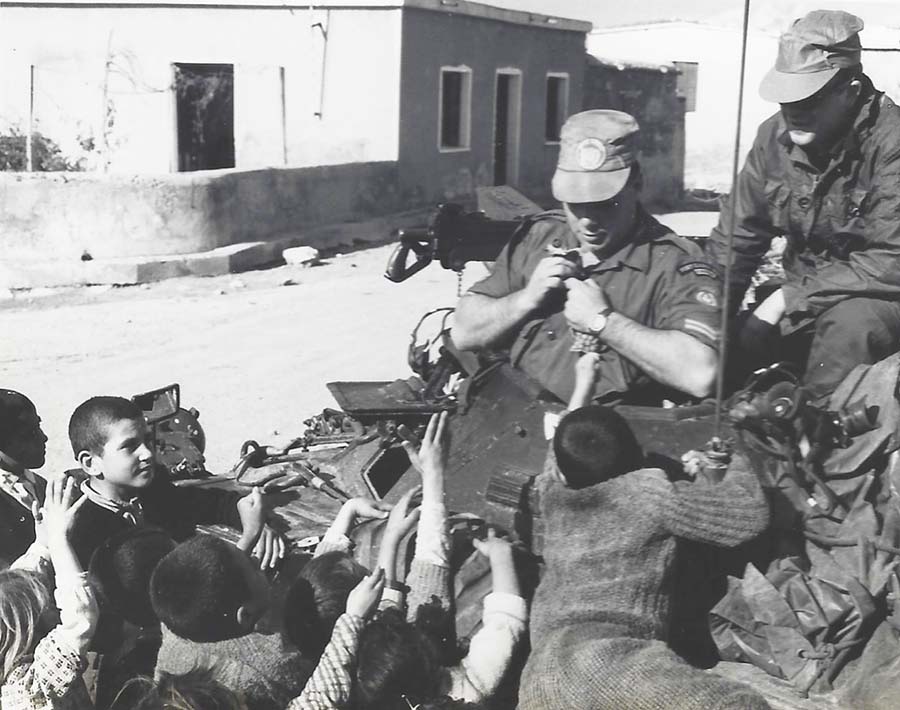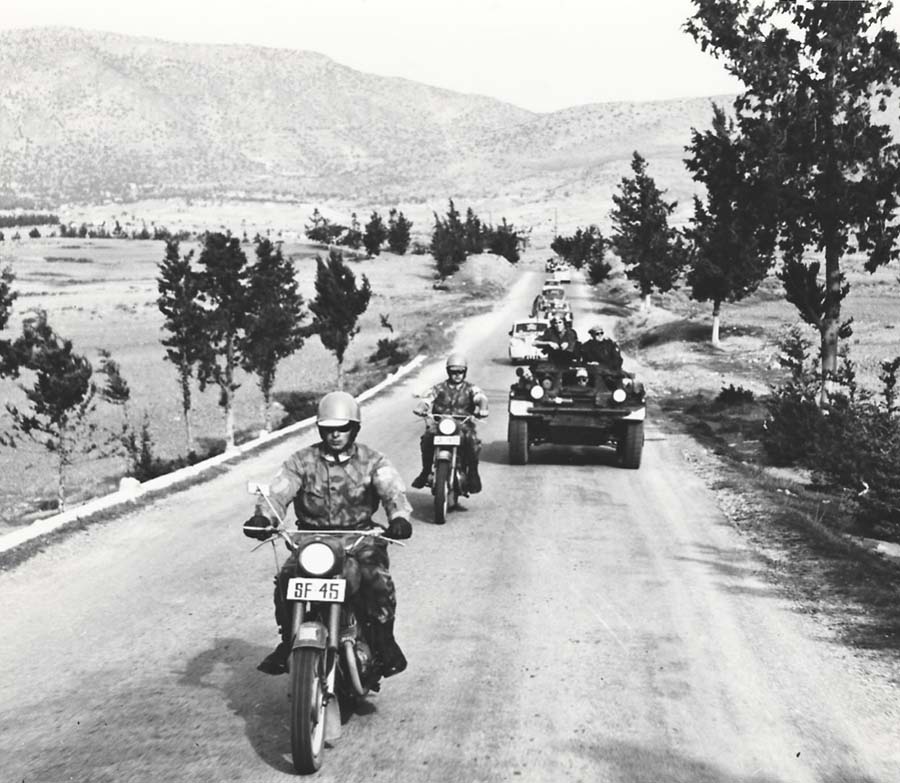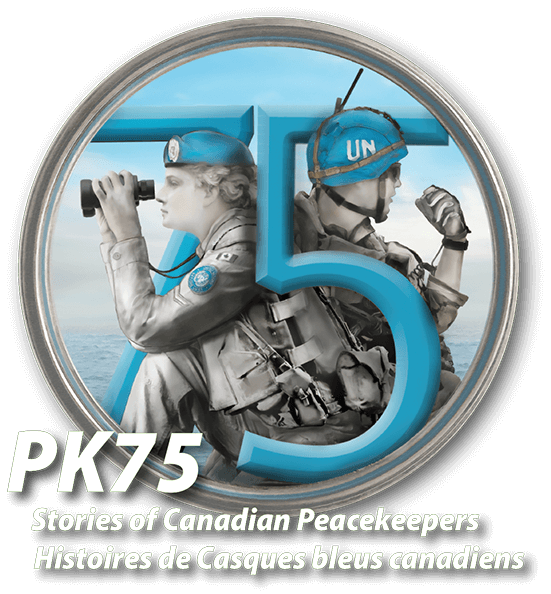

Toronto, ON, Canada
J.R. (Digger) MacDougall
Current Location: Rockland, ON, Canada
The story of my deployment with the first Reconnaissance Squadron of the Fort Garry Horse (FGH) to serve in Cyprus begins with my appointment, in 1966, as Acting Officer Commanding. Joining the Squadron in Calgary, from where I was serving in Germany, my training plan included: equipment take-over and maintenance; individual skills and weapons training; driver, crew, and troop training; shakeout and reestablishment as an independent unit; communications training and exercises in the nearby mountains; mine warfare, booby-trap and demolitions training at Camp Chilliwack; two months summer concentration in Camp Wainwright; live firing training and exercises on local ranges and in Wainwright; annual leave and UN leave; training in history, culture, and languages of Cyprus; and, other routine training and duties
Due to time limitations, the entire squadron’s shakeout and crew/unit development took place in -40° weather in Camp Wainwright, in Jan 1966. We trained in reconnaissance, communications, and troop and squadron operations on three, often off-road, routes. Officers and NCOs worked diligently with their troops, vehicles, and equipment; in minimal time, they became highly competent and well-led teams.
Following annual, individual, and crew training in March 1966, we conducted a major communications exercise in mountainous terrain and moved the Squadron to the School of Military Engineering in Chilliwack, for demolitions and mine warfare training. The new squadron commander (OC), Major Jack Smith, took over at that time. I had been trained earlier as a demolitions and mine warfare instructor, so I commanded the squadron in Chilliwack, and returned to Calgary to get married.
During May 1966, the squadron command team flew to London, ON, to meet with first Battalion, The Royal Canadian Regiment (1RCR) and coordinate planning that would allow us to be fully operational on arrival. In the summer, the squadron led the Battle Group on a multi-axis advance for the normally four-hour trip to the camp. Training began in earnest under the new Sqn OC. Then tragedy struck. On the 22 Km Battle P.T. test, Jack suffered heatstroke. He died two weeks later. I again was acting OC of the squadron which returned early to Calgary for the funeral. In September, I turned over command to Major Gord Kitchen, one of the finest officers that I ever met. He was a technical staff specialist who had trained at the Royal Military College of Science in Shrivenham, UK. For weeks, Gord picked my brains, and those of the troop leaders and operations officer. He wanted to know everything about the Squadron. Then, he ordered everyone to take all their annual and pre-deployment leave. I took a job as a forklift operator during my six weeks off so I would have enough money to bring my wife to Cyprus.
The Squadron advanced party joined with 1RCR in London, ON, on 14 October 1966 and flew to Cyprus. On arrival, we were met by those we would replace and began an intensive week of operational briefings and training. As second-in-command of an “independent unit” I had additional operational, administrative, technical and social responsibilities.
To meet our operational mission, the Squadron had to achieve efficiency in many areas, including operations and response; vehicle serviceability; safety and security; personnel fitness and morale; and diplomacy. Just as importantly we needed to eliminate possible inactivity and boredom. Once our predecessors left for Canada, operational planning meetings began apace.
Operationally, the Squadron’s 27 scout cars were divided into groups of five with two spares. Four Troops fulfilled the operational roles of convoy escort, long-range patrol, emergency ready force, and maintenance/rest/leave/training. An additional five scout cars were included in the monthly rotation for third-line maintenance and repair. This rotation plan ensured 90+% operational efficiency, the highest known efficiency rate in Cyprus.
Our OC commanded the Reserve Ready Force of UNFICYP which was frequently exercised during our deployment. One of my tasks as his second-in-command was to plan for and, if required, execute an evacuation plan for all Squadron and attached personnel to the safety of the RAF airbase in Akrotiri.
I was granted permission for my wife to visit for six weeks, and I arranged to house sit the home of the Deputy Canadian High Commissioner. We lived on Embassy Row and participated in many social events.
I am proud to add that the Squadron which I commanded in Canada and served in Cyprus made an impact on peacekeeping operations in Cyprus. Everyone earned the United Nations Cyprus Medal that, as veterans, we now wear. The Fort Garry Horse motto is “FACTA NON VERBA”: “Deeds not words”. We lived that motto every day and made the Regiment, the Corps and Canada proud.
Biography
Digger served in the Royal Canadian Army Cadets and the Canadian Army Reserve (RC Sigs) before graduation from the Royal Roads and Royal Military College of Canada with a BA (Hist/French). He served in the Fort Garry Horse and the RCAC School for 13 years in a variety of regimental positions including commanding both tank and reconnaissance squadrons and serving as an instructor in Tactics and commanding Driving and Maintenance Squadron. Digger trained and was employed briefly as an Army Pilot. He served with NATO in Europe and on United Nations peacekeeping duties in Cyprus. In 1970 Digger became a Personnel Selection Officer (PSO) and Military Psychologist for his final 20 years of service and was the senior military psychologist of the Canadian Army, NDHQ/AU, Communications Command, and Canadian Forces Training Systems. He developed and introduced significant input into leadership training, officer and aircrew selection, stress management in combat operations, counselling for post-traumatic stress, second career assistance, substance abuse education, and leadership.
Following retirement Digger was employed as a Certified Human Resources Professional in Career Counselling, Change Management, Management Development, Leadership Training and not-for-profit governance and operations because of his extensive Senior Management, Human Resources and Training Development achievement in both the public and private sectors. He successfully conceptualized, developed, and executed national and international multi-million-dollar programs and projects in these areas of expertise. He was selected as one of Canada’s top six interviewers and consulted with various departments of Federal and Provincial Governments as well as business, industrial and government environments around the globe. In recent years he developed and managed, as the only Canadian of an international team for the Bangladesh Open University overseas training project in Dhaka; provided consultation and training as a Senior Consultant to the largest human resources and career transition company in the world; recruited for the United Nations; and implemented the largest personal financial planning contract ever awarded in Canada.
Digger holds two master’s Degrees: Counselling Psychology, and Education from The University of Western Ontario and two bachelor’s degrees. In 1988, while serving as the senior military psychologist of the Canadian Army, he received the Freeman Anderson Award for outstanding achievement in Career Programs.
Digger MacDougall is the Founding Chair of Sing Canada Harmony, President of the 2400 member Ottawa Branch of The Royal Military College Club of Canada, former Chair of The Saint-Vincent Hospital Foundation, and has been Past Chairman, Founding Director and trustee of numerous Charity and not-for-profit Boards of Directors since 1968. He also served the business community as a mentor for members of the Ottawa-Carleton Junior Board of Trade. His professional memberships have included: Certified Human Resources Professional Associations of Ontario and Ottawa; Royal Canadian Military Institute (Toronto) and numerous others including military associations.
At the Canadian War Museum, as a key interviewer for the Museum’s Oral History Project he completed over 70 documented interviews of Military Personnel who served as Canadian Army Pilots prior to 1968, and who served in Canada’s NATO Brigades North (to 1973) and South (after 1973). Digger proudly served as a Volunteer Interpreter in Gallery 4 of the Canadian War Museum where he regaled visitors with tank and army knowledge, experiences, and interesting stories.

A major mission of the squadron was “long-range patrol”. A Canadian troop of scout cars performed reconnaissance duties and visited remote villages and hamlets to ascertain safety, health, and security of residents. This photo shows Cpl. Rudy Jodoin sharing goodies with the village children.

Civilian vehicles, often containing Greek Cypriot passengers, were guarded by one Canadian Troop of Ferret Scout Cars, for the one our trip between Nicosia and Kyrenia. Safe passage under armed escort through the Turkish Sector several times daily. Finnish outriders lead as Lt Doug Taylor commands his troop and the operation after marshalling vehicles at the check point.


